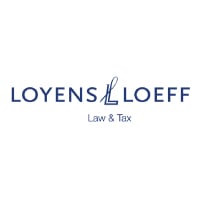

Group head of legal | Solution30 Group



Katarzyna Kuszewska
Group head of legal | Solution30 Group
What are the projects that you are most proud of working on over the past 12 months?
Further to the Governance, Risk, and Compliance project (“GRC”) and the overall transformation of the Group that I have been entrusted with in the past, we have worked diligently with our teams to ensure adherence to all policies and procedures elaborated in the context of these projects, with a particular focus on strengthening governance frameworks across the organisation. This effort extends to enhancing overall awareness and compliance across all subsidiaries of the Group, which in turn guarantees trust and stronger relationships with clients, partners, and all other stakeholders. As a result of the GRC, the Group now has in place a robust governance and compliance framework, with dedicated teams working tirelessly to support the growth of the Group and achieve its future goals.
Additionally, I have been involved in various projects related to M&A transactions, ensuring that all governance and compliance processes are seamlessly integrated throughout these transactions to mitigate risks and drive successful outcomes.
What do you think are the most important attributes for a modern in-house counsel to possess?
The role of modern in-house counsel has evolved significantly, and to be effective, they need a diverse set of attributes that go beyond traditional legal expertise. We are expected to wear many hats, from managing legal risks to contributing to business strategy and operations. The combination of legal expertise with business acumen, adaptability, communication skills, and strategic thinking allows in-house counsel to support their organisation’s long-term success while maintaining legal compliance and ethical integrity.
In my view, some of the most important attributes for a modern in-house counsel to possess include the following:
• A deep understanding of the business and industry in which the company operates. This includes knowing the company’s goals, challenges, and competitive landscape. In-house counsel should be able to make legal decisions that align with the company’s overall strategy and support its growth objectives.
• A global perspective – for companies with international operations like mine, in-house counsel must possess a global mindset. It is crucial to understand the nuances of cross-border laws, regulations, and cultural factors that could impact business decisions. Being able to navigate international legal frameworks and manage risks across different jurisdictions is essential, especially as companies become increasingly globalised.
• Strong communication skills – the ability to effectively communicate complex legal issues to non-legal stakeholders, such as senior management, executives, and employees in various departments. The ability to simplify complex legal language and tailor communication for different audiences is vital.
• Strategic risk awareness – not only understanding the legal risks associated with decisions but also being able to assess how these risks impact the company’s long-term strategy. This requires a strategic mindset to identify potential risks early and help devise solutions that mitigate or avoid these risks.
• Adaptability – the legal landscape is constantly changing, whether due to new regulations, emerging technologies, or shifting business models. In-house counsel must be adaptable to evolving circumstances and stay ahead of legal trends, adjusting their approach as necessary.
• Resilience – the ability to manage pressure, particularly when balancing multiple responsibilities and navigating legal challenges that may arise unexpectedly.
• Being technology-savvy – comfortable with legal technology tools and platforms and their continuous development. Technology is increasingly important in streamlining operations, improving efficiency, and ensuring compliance. Additionally, an understanding of cybersecurity and data protection laws is vital, as these are growing areas of concern for businesses.
How can general counsel foster a corporate culture that supports ESG principles and compliance across all levels of the organisation?
I believe that by playing a proactive role in integrating ESG principles into the company’s governance framework, compliance processes, and corporate culture, the General Counsel can ensure that ESG becomes not just a legal requirement but a central part of the organisation’s identity. In doing so, the General Counsel helps position the company as a leader in responsible business practices, ultimately enhancing long-term sustainability, stakeholder trust, and organisational resilience.
In my view, it is crucial that the General Counsel works closely with senior management, compliance, and ESG teams to ensure that the organisation is aware of and complies with relevant ESG-related laws and regulations. Moreover, the General Counsel should foster an ethical business culture by leading initiatives to strengthen the organisation’s code of conduct, ethics policies, and employee training programmes. This includes ensuring that employees at all levels understand the importance of ESG values and how they contribute to the company’s success.
These specific matters have been part of the GRC project I led in the past, and I believe that by demonstrating commitment to ESG principles in my own professional conduct and decision-making as a General Counsel, I am able to encourage others to follow this path and contribute to the organisation’s broader ESG goals. A strong personal commitment from leadership is crucial in inspiring similar behaviour across the organisation.
Group head of legal, chair of the group executive committee | Solutions 30